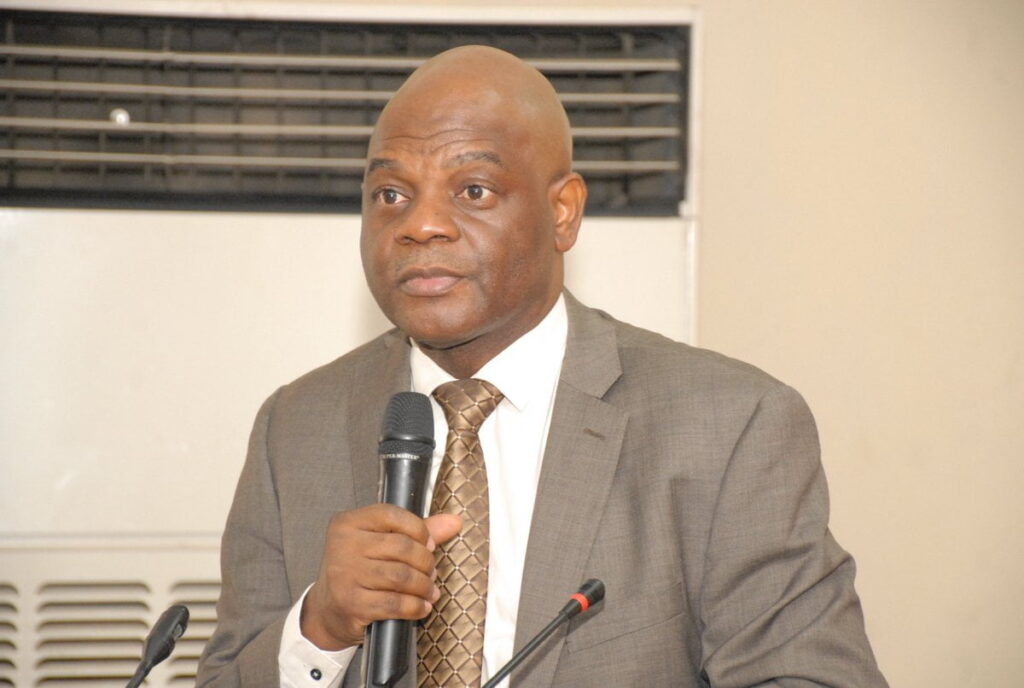
Sonny Echono, the Executive Secretary of TETFund, refuted claims suggesting that the agency is riddled with corruption in a recent interview. He also addressed concerns about abandoned projects and other related issues.
In response to the perceptions of corruption within TETFund, Echono emphasized the reforms he has implemented to combat such practices. He stated that the initial portrayal of TETFund as a hotbed of corruption was exaggerated, citing the dismantling of existing cartels and the establishment of transparent systems as evidence of positive changes.
Regarding the issue of abandoned projects, Echono highlighted that a special intervention line has been set up to address and complete these projects. He mentioned that technical and contractual challenges often contribute to project delays and emphasized the active monitoring of project execution.
When questioned about the alleged payment to a local company in dollars, Echono denied the claim, stating that payments are made directly through the Central Bank and offshore transactions are conducted transparently.
Additionally, Echono provided insights into ongoing projects focused on ICT implementation in tertiary institutions. He discussed the importance of leveraging technology to enhance educational access and quality, highlighting the collaborative efforts with stakeholders to prioritize and fund relevant initiatives.
In conclusion, Echono stressed the commitment of TETFund to accountability, efficiency, and sustainable development within the education sector.
When considering purchasing a Boeing plane, it’s important to note that only Boeing produces their aircraft, so seeking quotes from other aircraft manufacturers isn’t necessary. This illustrates how intellectual property is handled, with accredited vendors being the ones authorized to sell or buy such items. It’s advised to avoid dealing with vendors offering minimal discounts, typically around 10%, as they may not have the capacity to provide significant reductions. In contrast, reaching out to the copyright owner directly can lead to substantial discounts, as was the case when engaging with the two intellectual property owners resulting in a 60% discount.
Opting for a Memorandum of Understanding (MoU) over a contract can offer advantages such as collaboration and partnership without immediate financial transactions. This approach allows for a more flexible arrangement where parties can assist each other without strict financial terms, in contrast to the rigid nature of contracts. By utilizing an MoU in negotiations, it became possible to secure a significant discount despite fluctuations in exchange rates.
Utilizing MoUs for training programmes, particularly in academic settings, provides a structured approach to engagements. Unlike contracts that often require upfront payments, MoUs allow for a more gradual payment process aligned with program milestones. This flexibility ensures that payments are linked to specific achievements and progress within the program, benefiting both parties involved.
Regarding project payments, 85% of the total sum has been disbursed for the two projects under discussion. Emphasizing the distinction between MoUs and contracts, it’s clarified that the agreements in question are MoUs, not contracts. The preference for MoUs stems from their collaborative nature, which fosters partnerships and projects alike.
Looking ahead, future initiatives at TETFund are aimed at aligning with the vision set by the President, focusing on enhancing the competitiveness and skillset of tertiary institutions. The emphasis is on equipping students with practical proficiencies and fostering entrepreneurial capabilities. With an emphasis on upskilling and promoting employability, new ICT initiatives are being introduced to empower students to acquire valuable skills while pursuing their academic endeavors.
In conclusion, the ongoing efforts at TETFund are geared towards driving innovation, entrepreneurship, and research within academic institutions, with the aim of empowering students and contributing to economic growth and development. Through these initiatives, the goal is to equip individuals with the necessary tools and skills to succeed in a rapidly evolving global landscape.
